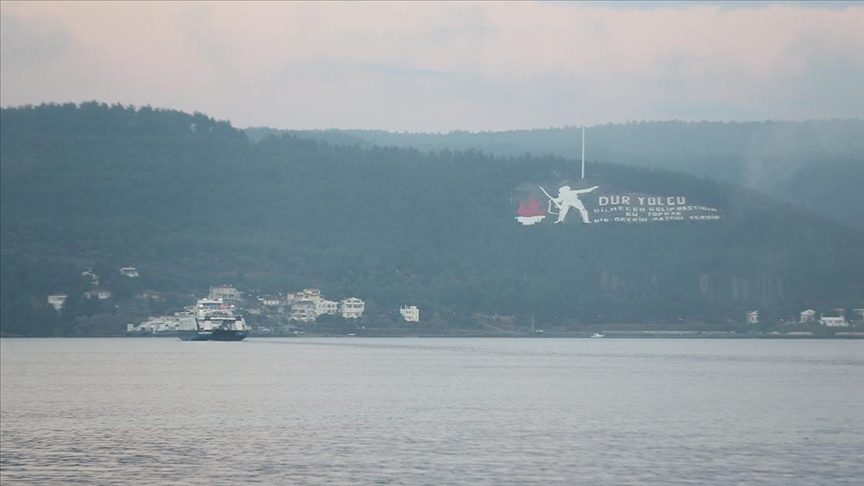Turkey conglomerate sees opportunities for collaboration with Israeli startups
Turkish conglomerate Sabanci Group, which last year bought a majority stake in an Israeli cybersecurity company, sees more opportunities for tech investments and collaborations between the two countries which recently saw a renewal in diplomatic ties.
“I was in Israel last year and my first thought was that I am late coming to Israel. I should have come before because there’s an enormous environment here for innovation and startups,” Gokhan Eyigun, President of Strategy & Business Development at the Sabanci Group told The Times of Israel on the sidelines of the GoforIsrael 2023 investment conference in Tel Aviv. “
We will be looking for digital businesses more in Israel and I’ll be seeing some startups to build relationships and for networking.”
Sabancı in April last year acquired a 51% stake in Radiflow for $45 million, with an option to buy up to a 100% stake in the cybersecurity startup by 2025, to help the group and its subsidiaries in their digital transformation growth plan.
Israel-based Radiflow is an operational technology (OT) cybersecurity company that has developed risk management solutions for the protection of critical infrastructure and the operations of factories providing anomaly detection and securing products.
“We wanted to invest in cybersecurity, and when it comes to cybersecurity, Israel is one of the prominent places on earth,” said Eyigun. “We came up with a long list of possible targets, and a lot of them are Israeli companies.”
Gokhan Eyigun, President of Strategy & Business Development at the Sabanci Group (left) and Lisya Bahar Manoah, General Partner at Catalyst Investments. (Shai Shviro/Courtesy)
“We decided that Radiflow is the right fit, but also the country, because Israel provides an environment for companies to prosper further and we can add value and make the company more global with our international presence around the world,” he added.
Eyigun said Radiflow’s security platform will be deployed by one of its energy subsidiaries to protect their remotely operated power plants from cyberattacks.
The Istanbul-based industrial and financial conglomerate manages a portfolio of companies in 14 countries worldwide mainly in the banking, financial services, energy, industrials, building materials, digital and retail sectors. The combined revenue of the group is around $25 billion.
Sabancı’s multinational business partners include leading global companies such as Ageas, Bridgestone, Carrefour, E.ON, Heidelberg Materials and Skoda.
Renewal of Israel-Turkey ties
Over the past year, economic ties between Israel and Turkey have started to benefit from the warming of relations between the two countries. In August 2022, Israel and Turkey announced a full renewal of diplomatic ties. More than four years before, Turkey recalled its ambassador and asked the Israeli envoy to leave in protest of Israel’s response to rioting on the Gaza border, in which dozens of Palestinians were killed.
Turkey is the fifth most important trading partner in the Israeli economy in terms of imports and the seventh largest export destination in 2022, according to data by Israel’s Central Bureau of Statistics.
Exports from Turkey to Israel, not including diamonds, more than doubled from $2.3 billion in 2011 to $2.6 billion in 2015 and $5.7 billion in 2022, and mainly consisted of raw iron bars and cars. Israeli exports to Turkey, mainly chemicals, amounted to about $2.3 billion in 2022.
“I think it’s very important for Turkey and Israel to become allies — it can be a great role model for the development of the region,” said Eyigun. “There are lot of complementary capabilities and synergies which we need to further focus on.”
Israeli companies are good at initiating ideas and at innovation, and Turkish companies are good at scaling that up in mass manufacturing, Eyigun noted.
Agritech and water tech
Eyigun cited agritech and watertech as two major areas for Israel and Turkey to join forces and collaborate.
“Agriculture is immense in Turkey, but we are lacking the use of some of the new technologies, and water is very scarce as almost 70% of water is used in irrigation in Turkey and we need to use it much more efficiently,” he remarked.
Eyigun also sees Turkey playing a role for Israeli gas to be exported to Europe.
“Israeli gas should reach out to Europe and the most feasible way is through the land rather than the sea and there Turkey will always play a great role,” according to Eyigun. “That’s another reason why I believe in an alliance between Israel and Turkey.”
Lisya Bahar Manoah, general partner at Tel Aviv-based Catalyst Investments, said that recent political uncertainty due to the judicial debate hasn’t stopped investors from Turkey coming to Israel.
Originally from Istanbul and connected to both countries, Manoah said since the renewal of diplomatic ties she sees more investments and acquisitions in Turkey and in Israel.
“Israeli agritech companies have started to collaborate with Turkish agriculture industry and agriculture companies,” said Manoah. “Turkey could also serve as a gateway for Israeli companies to reach bigger geographical markets and countries they haven’t been able to until now, including Arab countries such as Saudi Arabia.”
Catalyst Investments is an Israeli private equity fund set up by Edouard Cukierman, Yair Shamir and Boaz Harel, which has over $450 million in assets under management. The fund focuses on fostering medium-sized startups in fields ranging from telecom, advanced manufacturing, IT, medical equipment and life sciences. Some of the prominent portfolio companies include Mobileye, Tufin Technologies, Taboola and Arbe Robotics.
Catalyst on Wednesday announced the closing of its $150 million Catalyst IV fund, which has already made three initial investments into CuraLife, Addionics and Nexar. The fund will seek investments in the areas of cybersecurity, life sciences, deeptech, mobility, climatetech, foodtech and renewable energy. Catalyst III resulted in five exits out of eight investments, with four going public in the US and one through M&A.


